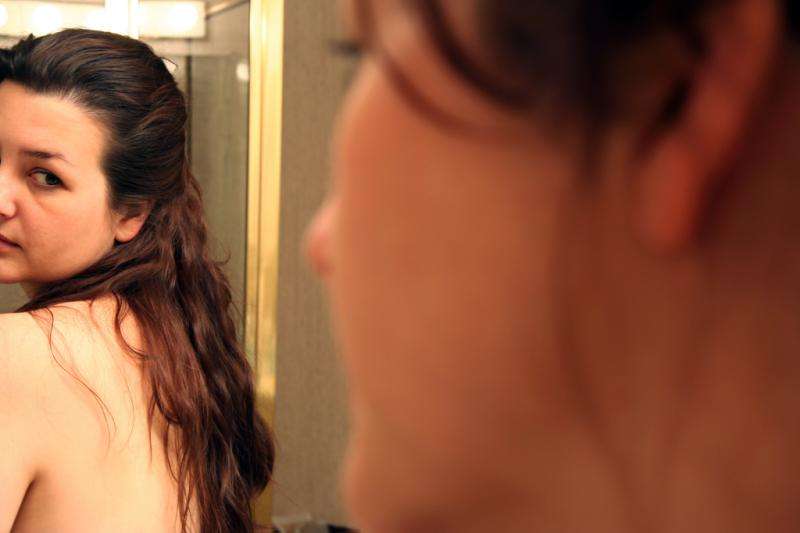Post-pregnancy pain linked to poor body perception

A West Australian study has found a new mother's perception of her body could be directly related to cases of lumbopelivic pain post-pregnancy.
The study, published on PLoS One, examined three main factors associated with ongoing lumbopelvic pain after childbirth in women with moderate disability: disturbed body perception, reduced sleep, and kinesiophobia (fear of movement).
Curtin University researcher and co-author Darren Beales says most women experience some form of lower back and pelvis pain during pregnancy.
"While for most women there is good resolution of symptoms following birth, as many as 10 to 20 per cent can have ongoing problems continuing even two years after the birth," Dr Beales says.
"For some this can be quite debilitating, resulting in difficulty moving around, walking and working, and can also be psychologically distressing."
Dr Beales says that while many women suffer from this condition, other psychological factors must be taken into account before diagnosis.
"Some women with pregnancy-related lumbopelvic pain feel that their pelvis is 'out of place' and that this is causing their pain," he says.
"The evidence for the pelvis being out of place is quite poor.
"Given the relatively rapid changes in womens' bodies during and after pregnancy, it may not be surprising that altered body perception may occur."
Fear of movement promotes inactivity
The researcher says kinesiophobia, or fear of movement, has previously been linked to lumbopelvic pain during pregnancy.
"Our results show that this remains a factor when pain persists after pregnancy," Dr Beales says.
"In this instance fear results in reduced activity participation and higher levels of disability."
Dr Beales says disturbed sleep is also common in pain disorders, but the study found that lack of rest could just be related to having young children to care for.
The researcher says while these were all significant findings, the results also suggest that on an individual basis, all the factors involved in ongoing pain after pregnancy may be quite complex.
"We are presently repeating a similar studies looking at changes from during pregnancy to after pregnancy to improve understanding of how the contributing factors to pain and disability may shift across time," he says.
"We know we can change health care practitioner beliefs, but we need more research into making sure changes in beliefs result in better management programs for these women."

















